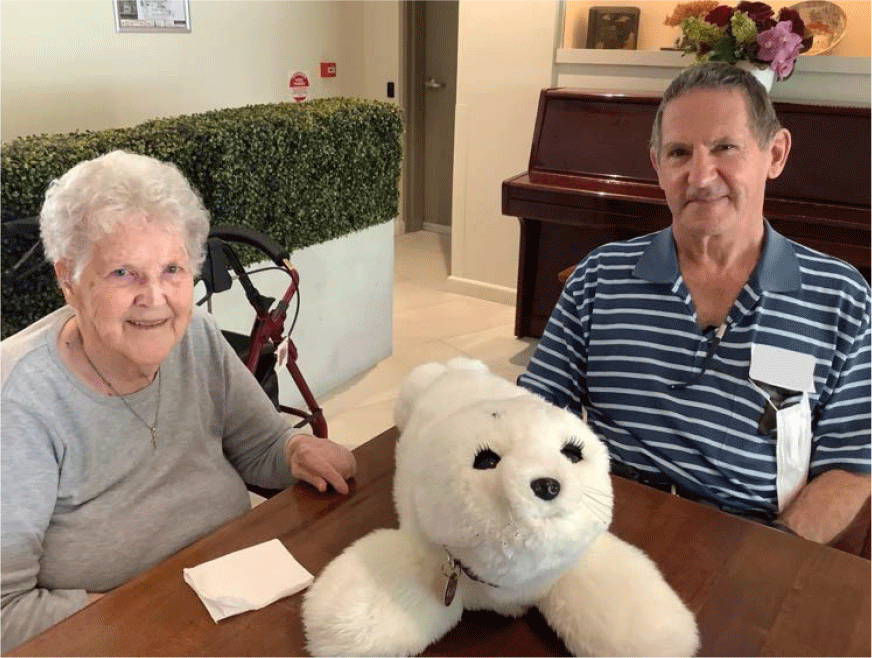No CrossRef data available.
Published online by Cambridge University Press: 02 February 2024
To explore the benefits and barriers of using an interactive robotic seal (PARO, Figure 1) based on the experiences of nursing home residents living with dementia and chronic pain, their family members, and formal caregivers.
Semi-structured interviews were conducted alongside a feasibility randomized controlled trial at one nursing home in Brisbane, Australia between July 2021 and January 2022 (Trial registration: ACTRN 12621000837820). Residents with dementia and chronic pain interacted with PARO individually for 15 min once or twice daily, five days per week for three consecutive weeks. After which, individual interviews were conducted with residents who were capable of communicating (n=13), family members (n=3), registered nurses (n=4), care assistants (n=11), a physical therapist (n=1), a diversional therapist (n=1) and the facility manager (n=1) who experienced or observed the residents’ interactions with PARO. The interviews were audio-recorded, transcribed, and analyzed using thematic analysis.
Almost all participants reported that interacting with PARO benefited residents with dementia and their caregivers. These benefits included (1) reducing pain by providing distraction and stimulation; (2) reducing behavioral and psychological symptoms of dementia; (3) promoting positive emotions by recalling memories; and (4) reducing anxiety and care burden for family and formal caregivers. Neutral attitudes toward PARO were reported by three residents with mild cognitive impairment as they reported it did not make any difference. Barriers to using PARO included limited staff training and the implementation of person‐ centered care due to limited resources.
Overall, multiple stakeholders were positive about using PARO to reduce pain and behavioral symptoms of nursing home residents living with dementia and chronic pain. PARO may also reduce the care burden of family and formal caregivers. PARO might be incorporated into daily practice to support nursing home residents living with dementia. Improving staff training and understanding individual preferences of residents may enhance the implementation of PARO in this population.
Figure 1
A resident living with dementia and her family after interacting with PARO (Distribution of this photo has been approved by the resident and her family)
